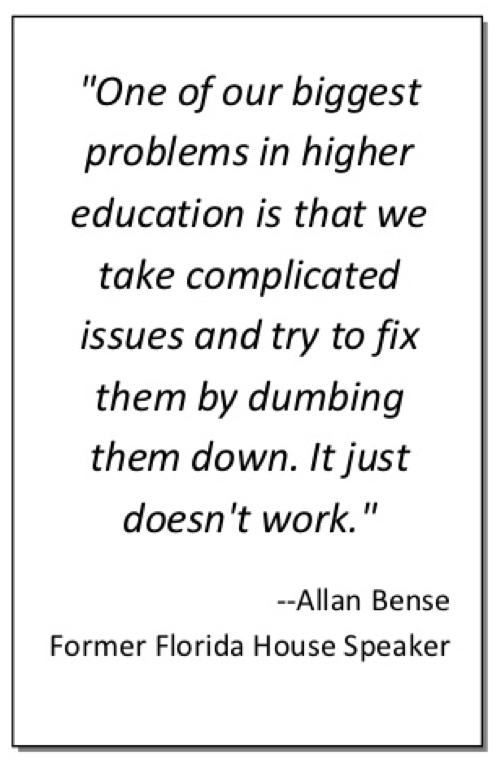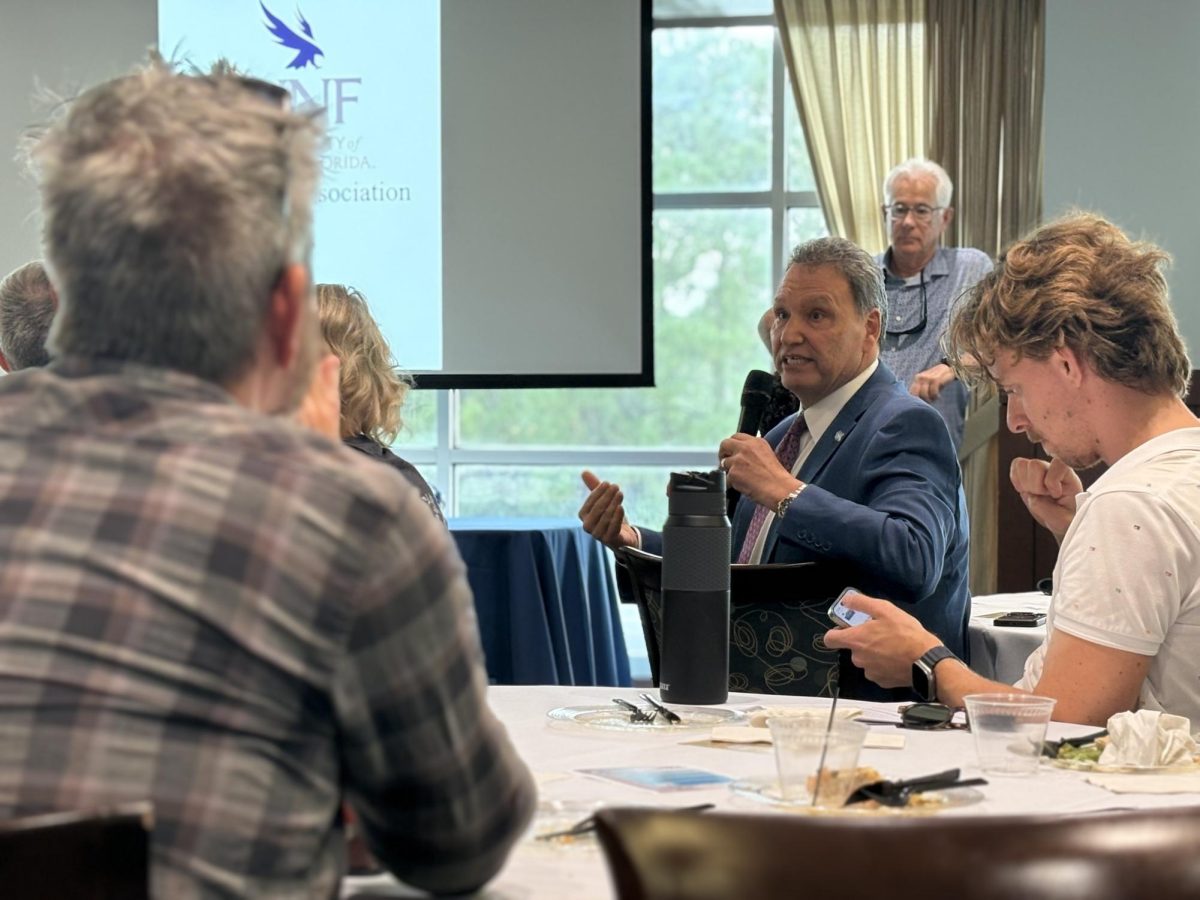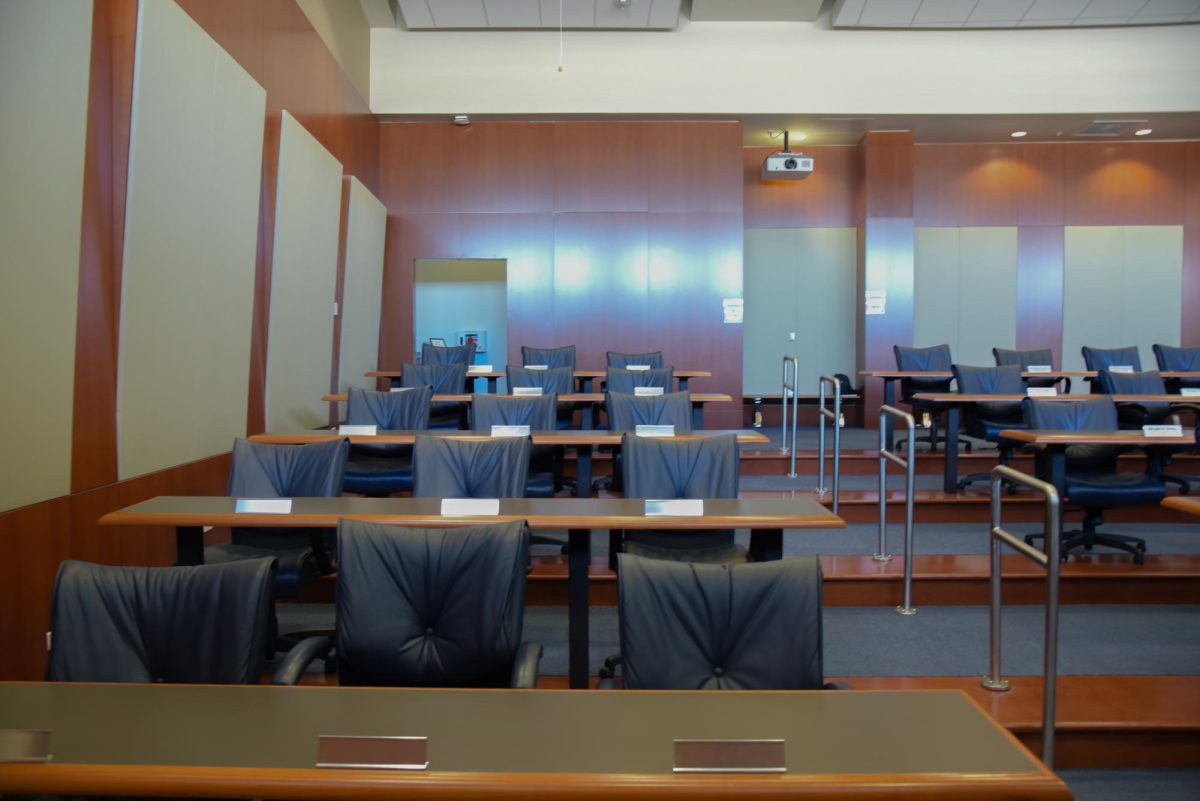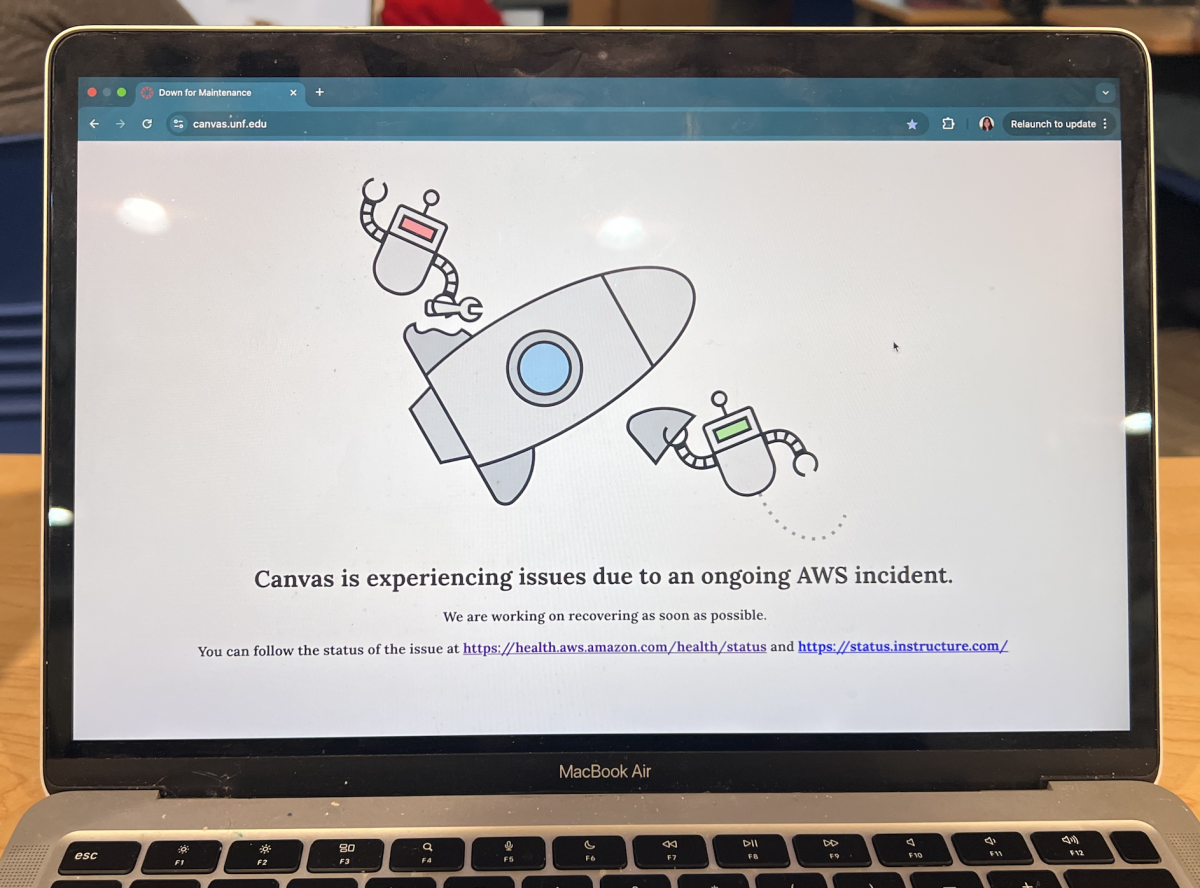Tuition could be going up for some students but not others if the findings from the Blue Ribbon Task Force on Higher Education are enacted.
Commissioned by Gov. Rick Scott, the task force was created to create strategies for improving the state’s public university system. The task force’s key findings include performance based funding, tuition variances to entice students, and expanding the role of the Board of Governors to include fund distribution and university president appointment.
Specific ways to accomplish this were not indicated in the 38-page report released last month, which Gov. Scott commissioned to address the rising cost of tuition for Florida students.

Task force member and UNF President John Delaney said the money has to come from somewhere.
Delaney said when he became the president of the university the state subsidized around 70 percent of the cost of higher education, and students picked up the remaining 30 percent. The split now is closer to 50/50.
Students have not been quiet in the process. In an effort to keep that divide from widening further, the Florida Student Association has organized the Aim Higher Program. The program organizes rallies and letter writing campaigns to encourage the state legislators to increase funding for higher education.
Formerly if a full-time course load costs a university $100 dollars, the state legislature paid for $70 dollars of it, and the student paid the remaining $30 dollars as tuition fees. Now a student’s contribution is equal to the amount coming from the state, thus increasing the burden on the student.
Florida spends 30-40 percent less on each student on average when compared to other states, Delaney said.
“If tuition isn’t going to go up then state support is going to have to go up,” Delaney said.
One task force initiative is to freeze tuition for in demand science, technology, engineering and math majors, essentially altering the price of obtaining certain degrees. Currently the legal limit for increasing tuition is 15 percent, but if tuition for certain majors are frozen, other majors could quickly become more expensive.
According to a poll released by Quinnipiac University, approximately three-quarters of Florida voters are against the task force’s recommendations.
Sixty-six percent of voters oppose charging different tuition for different majors and 73 percent of voters oppose allowing certain high profile colleges to charge more in tuition than other state universities.
Delaney said that the state is hurt in the long run if higher education isn’t invested in.
Those sentiments were echoed by Student Body President Carlo Fassi who said education is an investment for the state and not simply an expenditure.
Fassi said UNF’s Student Government would be keeping an eye on how these initiatives would be put into action to ensure they are fair to students.
“We need to make sure that all our students, whatever degree they choose to pursue are being fairly subsidized by the state,” Fassi said.
Email Catherine Byerly at enterprise@unfspinnaker.com.











